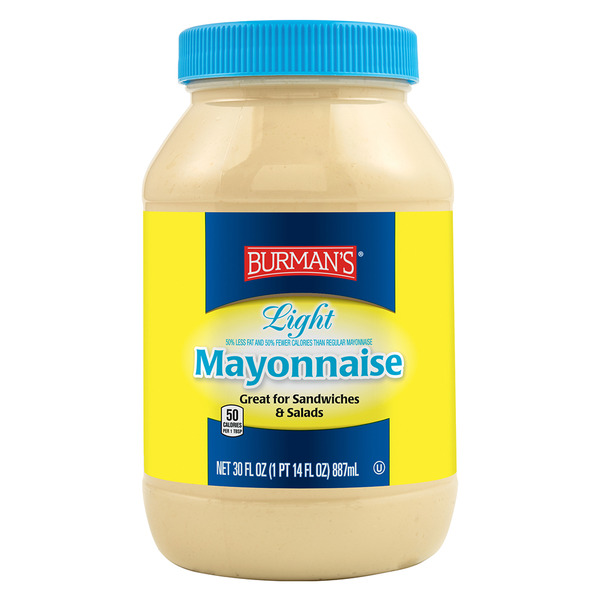Apply Now
Effective Ways to Enhance Your Vegetarian Mediterranean Diet in 2025
The Mediterranean diet is renowned for its health benefits and delicious array of colorful dishes. In 2025, as dietary preferences continue to shift toward plant-based eating, enhancing a vegetarian Mediterranean diet can offer outstanding health benefits while showcasing the diverse flavors of traditional cuisine. This article will dive into ways you can enrich your vegetarian Mediterranean diet, focusing on healthy recipes that emphasize whole foods, seasonal produce, and mindful eating practices.
In addition to maintaining a vibrant plate, we will explore key Mediterranean ingredients like olive oil, legumes, grains, and fresh herbs that not only enhance flavor but also boost nutritional value. Whether you are trying to optimize your meal planning for weight loss or simply enhance your culinary repertoire, this guide will provide you with practical tips and delicious meal ideas to embrace the Mediterranean lifestyle fully.
Understanding the Nutritional Benefits of the Vegetarian Mediterranean Diet
Adopting a vegetarian Mediterranean diet comes with a variety of nutritional benefits. Studies consistently show that this diet is linked to lower risks of chronic diseases, including heart disease and diabetes. Central to this diet is the focus on whole foods, healthy fats from sources like olive oil, and a bounty of plant-based meals rich in fiber, vitamins, and minerals.
Incorporating legumes, grains, and a wide range of vegetables into your diet provides necessary protein and nutrients that many vegetarians may overlook. A diet rich in fiber from fruits, vegetables, and whole grains promotes digestive health and aids in controlling weight. Additionally, the use of Mediterranean spices not only enhances flavor but can also reduce the need for added salt, aligning with low-sodium options.
In 2025, more families will find themselves navigating busy lifestyles. Thus, understanding basic nutritional principles and effectively meal planning can help you maintain proper portion sizes while embracing healthy eating habits.
Incorporating Seasonal Produce for Wholesome Eating
Utilizing seasonal produce is crucial in achieving a sustainable and flavorful vegetarian Mediterranean diet. Each season brings unique fruits and vegetables that not only taste better but are also more nutritious. For example, summer offers juicy tomatoes and cucumbers, while fall showcases hearty squash and greens.
Planning meals around seasonal produce allows for greater variety and freshness on your plate, which can inspire creative vegetarian dishes. Start by visiting local farmers' markets to engage with seasonal eating habits and discover new ingredients. For instance, try incorporating fresh herbs like basil and mint into your meals to elevate flavors and increase nutritional density.
Additionally, these wholesome ingredients can be used in simple salads, vibrant smoothies, or hearty grain bowls, aligning perfectly with the Mediterranean emphasis on colorful meals.
Exploring Cooking Techniques for Flavorful Vegetarian Dishes
Cooking techniques play a vital role in bringing out the best flavors in vegetarian Mediterranean dishes. From grilling vegetables to roasting legumes, these methods can enhance meal diversity and incorporate various textures on your plate.
Unlock the potential of Mediterranean grilling techniques, which not only add a smoky flavor but also celebrate the inherent taste of vegetables. Roasting veggies with herbs and a drizzle of high-quality olive oil creates nutrient-dense meals that are nutritious and satisfying.
Don't shy away from traditional recipes that highlight authentic cuisine. Knowledge about ethnic ingredients and recipe variations can broaden your culinary skills, leading to harmonious meals. Experimenting with Mediterranean spices like za'atar, cumin, and saffron will allow adventurers to discover a treasure trove of flavor profiles.
Mindful Eating and Portion Control in the Mediterranean Lifestyle
Embracing a mindful eating approach can significantly enhance your experience and satisfaction while following a vegetarian Mediterranean diet. The Mediterranean culture promotes enjoying meals with family and friends, emphasizing the importance of social dining experiences. This connection can foster healthier eating habits and promote portion control naturally.
Practicing mindfulness in eating means paying attention to how food makes you feel and savoring each bite. Utilize the Mediterranean food pyramid to guide your meals, ensuring to balance your plate with healthy fats, whole grains, and a colorful assortment of vegetables while keeping portion sizes in check.
Adopting these habits in 2025 will also facilitate growth in healthy eating resources, as you become more aware of your dietary choices. It’s important to note that opting for vegetarian alternatives doesn’t have to mean sacrificing flavors or satisfaction, as creative food pairings can lead to delightful culinary experiences.
Creative Recipe Ideas that Embrace Mediterranean Flavors
Having explored the basics of the vegetarian Mediterranean diet, we transition to practical applications through creative, straightforward recipes that you can incorporate into your meal planning.
Simple and Delicious Plant-Based Meal Ideas
Infuse your vegetarian Mediterranean diet with simple recipe ideas that are quick to prepare yet utterly flavorful. Consider starting with a classic Mediterranean dish like ratatouille, which is made by stewing seasonal vegetables such as zucchini, eggplant, and bell peppers seasoned with fresh herbs.
Another meal option is a quinoa salad tossed with chickpeas, cherry tomatoes, and a zingy lemon dressing. This dish can serve as a fantastic source of vegetarian protein and vibrant flavors while being finished in under 30 minutes.
For those seeking snack ideas, low-carb Mediterranean snacks, such as roasted red pepper hummus served with crisp vegetable slices, strike a balance between taste and healthy fats. These variations will ensure that your meals are not only nutrient-dense but also enjoyable.
Exploring Flavor Profiles in Vegetarian Dishes
Each Mediterranean dish is a canvas for exploring diverse flavors, and enhancing taste can elevate your dishes to new heights. Embrace the distinct flavor profiles seen across the Mediterranean region by incorporating various culinary herbs and spices into your meals.
For example, consider a fragrant herb blend with fresh parsley, dill, and basil that adds brightness to your dishes. Utilizing ingredients like olives or sun-dried tomatoes can introduce saltiness and depth to salads or pasta dishes.
Experimenting with different cooking styles will encourage creativity in your kitchen. Strive to create Mediterranean-inspired dishes that showcase local ingredients for fresh, exciting dining experiences.
Creating Nutrient-Dense, Seasonal Salads
Salads are a staple of the Mediterranean diet, and creating nutrient-dense salads can significantly diversify your meal options while enhancing health benefits. Begin with a base of greens like arugula or spinach, and layer it with various vegetables for color and texture.
Including a protein source, such as lentils or feta cheese, provides satiation and essential nutrients. To enhance flavor, drizzle your salads with an olive oil-based dressing sprinkled with Mediterranean spices.
In 2025, discovering new ways to combine wholesome ingredients will help you appreciate the depth of Mediterranean cuisine. Furthermore, presenting seasonal salads at gatherings allows you to share the joys of healthy eating with others.

Meal Planning for a Balanced Vegetarian Mediterranean Diet
After exploring flavor and nutrition, we now turn our focus toward effective meal planning strategies that can guide your journey in 2025.
Practical Tips for Efficient Meal Preparation
Efficient meal preparation can streamline your cooking process, allowing you to maintain a consistent vegetarian Mediterranean diet without feeling overwhelmed. Start by setting a weekly plan that includes a variety of meals to keep boredom at bay. Utilize batch cooking methods to prepare legumes, grains, and roasted vegetables that can later be combined into different meals.
This method not only saves time but also diversifies your meals throughout the week. Implementing a grocery shopping list based on your planned meals ensures that you have all the necessary ingredients at your disposal while minimizing food waste.
Another helpful strategy is to foster collaboration with family members to encourage cooking together as a fun activity. Engaging in this communal cooking can lead to delightful memories and an enhanced appreciation of Mediterranean culture.
Navigating Dietary Restrictions with Ease
As you embrace the vegetarian Mediterranean diet, it's essential to recognize and navigate various dietary restrictions that you or your family may encounter. By being aware of common misconceptions surrounding plant-based diets, you can cater meals to fit lifestyle choices while still enjoying traditional Mediterranean flavors.
For those who may be gluten-sensitive, focus on naturally gluten-free grains like quinoa and brown rice as alternatives. When cooking for dairy-free preferences, consider nutritional yeast, almond milk, or other vegan alternatives that provide satisfaction without compromising taste.
If you're catering to a family member who has specific dietary restrictions, researching Mediterranean-inspired recipes that align with their preferences allows for enjoyable meals that don’t sacrifice nutrition or flavor.
Using Nutrition Tracking For Balanced Eating Habits
In 2025, nutrition tracking is an invaluable tool that individuals can leverage to enhance their vegetarian Mediterranean diet. Mobile applications and resources available can assist in tracking food intake, portion sizes, and nutrient ratios, providing insights into balanced eating habits.
Monitoring dietary choices can promote mindfulness in eating, encouraging individuals to make educated decisions during grocery shopping or meal planning. Understanding the nutritional benefits of ingredients fuels your passion for Mediterranean cooking and fosters a more profound relationship with food.
Utilizing these nutritional resources can also enhance your cooking for families, creating delicious, wholesome meals that nurture health and wellbeing.

Final Thoughts on Embracing a Vegetarian Mediterranean Lifestyle
In conclusion, effectively enhancing your vegetarian Mediterranean diet in 2025 requires mindful integration of wholesome ingredients, culinary traditions, and community involvement. By focusing on meal planning, embracing seasonal produce, and exploring diverse flavors, you will develop a culinary experience that is as enjoyable as it is nutritious.
Investing in your habits, understanding portion control, and utilizing nutritious meal ideas will help you maintain a balanced approach to eating that aligns with the Mediterranean lifestyle. Cultivating mindfulness in all aspects of your diet ultimately leads to a more rewarding and healthful experience—rich in flavors, culture, and sustainable practices.
The vegetarian Mediterranean diet is a journey toward wellness that allows you to connect with the vibrant Mediterranean culture while enjoying the myriad benefits of plant-based nutrition. Remember, it’s not just about food—it’s about creating a lifestyle that brings joy and health to you and your loved ones.


